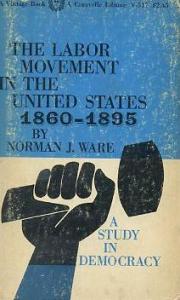
İkinci El
This classic in the field of American labor history traces the rise to power, the heyday, and the decline of the Knights of Labor and the emergence of the American Federation. Professor Ware's impartial account vividly and concretely describes and analyzes the struggles of the Knights of Labor in a period in which craft distinctions were disappearing while the owners of capital were consolidating their power to a point where they could be challenged only by a unified labor movement. The 'principle of solidarity' is singled out as the key to understanding what the Order tried to teach the American wage earner, through factional internal fights and jealousies accounted in part for the failure of the movement. And yet '...as propagandists, organizers, and experimenters...[the Knights of Labor]' had remarkable, if emphemeral success."
İkinci El
This classic in the field of American labor history traces the rise to power, the heyday, and the decline of the Knights of Labor and the emergence of the American Federation. Professor Ware's impartial account vividly and concretely describes and analyzes the struggles of the Knights of Labor in a period in which craft distinctions were disappearing while the owners of capital were consolidating their power to a point where they could be challenged only by a unified labor movement. The 'principle of solidarity' is singled out as the key to understanding what the Order tried to teach the American wage earner, through factional internal fights and jealousies accounted in part for the failure of the movement. And yet '...as propagandists, organizers, and experimenters...[the Knights of Labor]' had remarkable, if emphemeral success."










